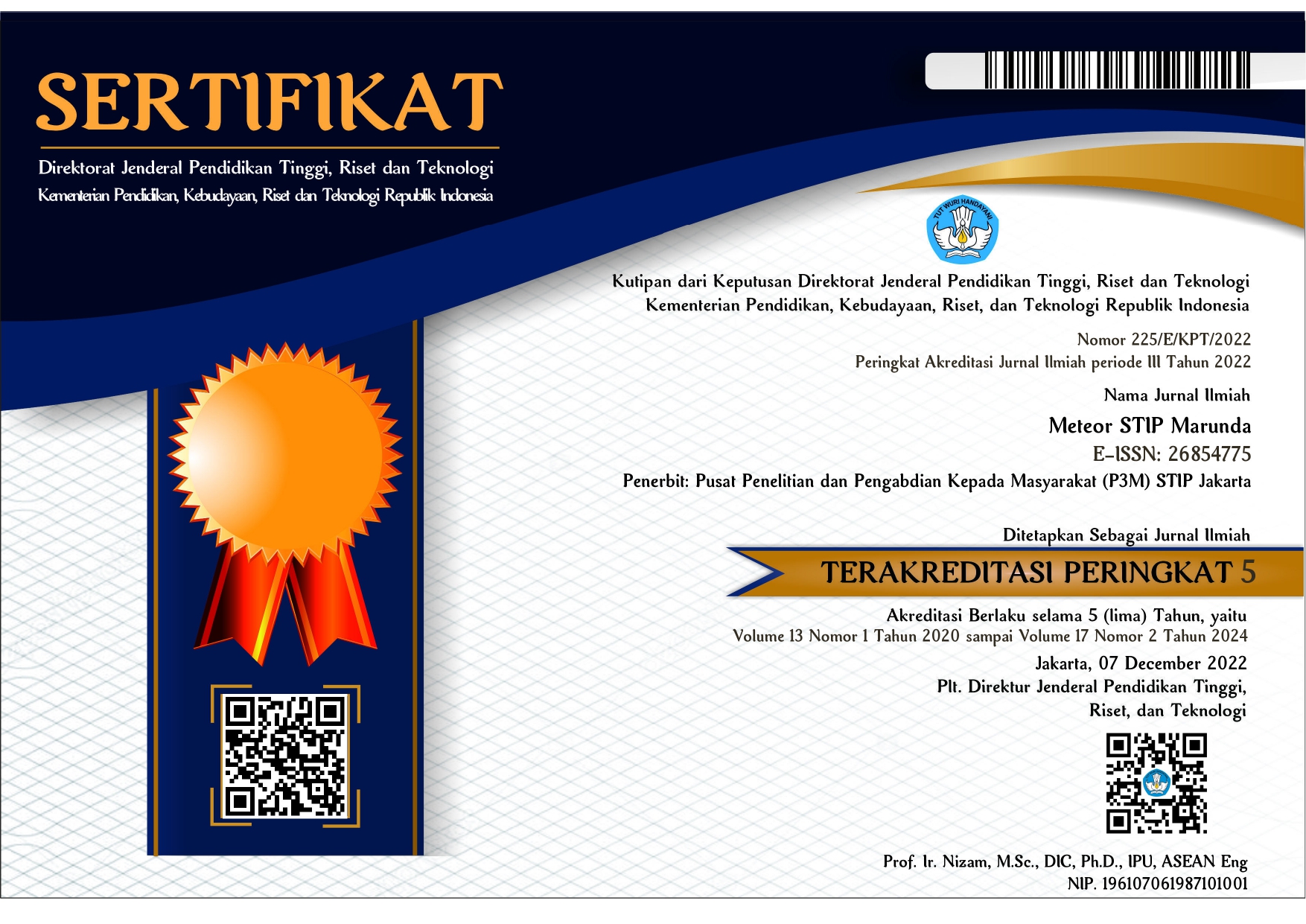Analysis of the Impact of the "Sea Toll" Program for Seaports: Study Case Bitung Port
Abstract
This research aimed to measure the reliability fulfillment of Bitung Port as the most Eastern port in Indonesian in succeeding the Sea Toll program that it was launched by the government in the Working Cabinet Nawa Cita. This research used qualitative descriptive research method. Data were collected by documentation, observation and interview techniques. The number of population was all reliability indicator components that determined by the National Development Planning Agency such as installed facilities, productivity level, effective documentation, data availability and information system, water entrance and inland transport then support institution of Bitung Port. Based on result of research, it was found that the six components of reliability that assessed at Bitung Port generally had fulfilled reliability criteria in supporting the Sea Toll Program, except Port Productivity component from the assessment aspect of Berth Output (BTP) and Gang Output which of experiencing trend of decreasing the quantity of load from year to year in Berth Output (BTP) calculation and no achieving of standard Gang Output which required to container transport at conventional wharf.













